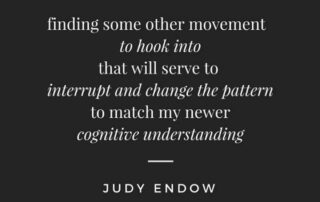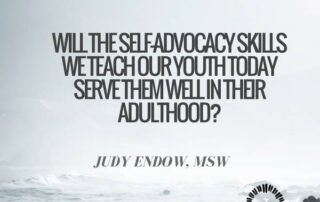Autism and Public Perception
Autism and Public Perception by Judy Endow Today we have added something to our public perception of autism. Historically that perception has been one of an isolated small child rocking or head banging, oblivious to the rest of the world. Even though that perception is wrong, it is the public perception. There is an addition to that perception in the past few years. It seems society has added an adult image of autism. It is another false image, but never-the-less, quickly becoming an accepted public image of what it means to be an adult autistic. Unfortunately for
Autistic Patterns of Thoughts and Emotions
I use the movement of things outside of me for purposes of thinking and of processing feelings. Recently, autistic friends have let me know that most people in the world do not do this and that it is a rather common autistic experience. I have no idea how common so would very much appreciate autistic weigh in here. Thinking My thoughts are all in colors and pictures. Usually there are sounds attached, but not always. To think I need a way for the colors and pictures to move. When my sensory system is calm and integrated the thoughts
Autism, Transition Programs and the Impact of Poverty on Self-Advocacy
I am an autistic woman who has lived both in poverty and as a middle-income person during my adult life. I am noticing how self-advocacy is typically geared toward middle-income status. This could be problematic since many autistic adults live in poverty. Based upon my experience I have come to realize that middle class self-advocacy works fine if in fact you are a middle-income person, but doesn’t work well if you are a poor person. I will explain this more using an example from my life as a poor person versus a middle class person. Dental Experience as
Visual Accommodations and Blessings of My Autism
The visual sensory aspects of the way autism plays out for me most of the time means that I get too much information delivered – things are too big, too bright, too bold – typically too much to endure all day. Practically, this means I need to accommodate my sensory system in a variety of ways. Let’s take but one example from my life where visual overload is a pretty constant problem. Here are some things I have found helpful: Environmental Accommodations for Overhead Lights Most of the time I simply do what I need unless it





